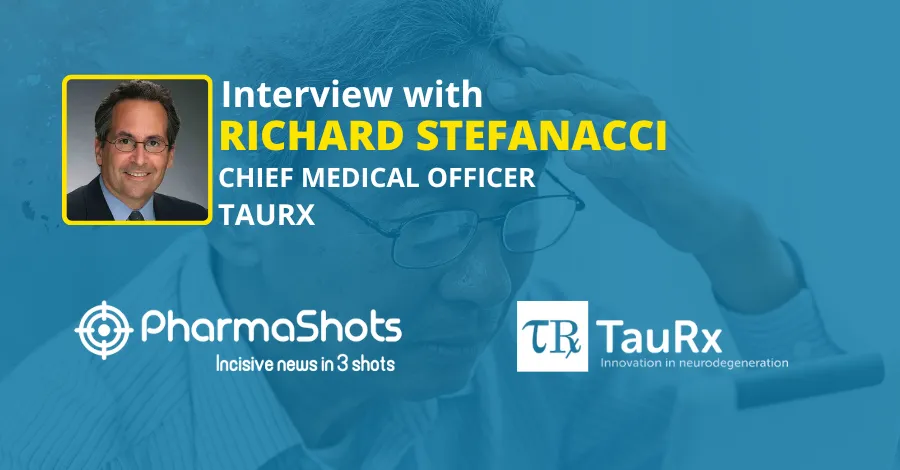
Scott Stout, CEO of MedVector his Views on the Misunderstood FDA’s Guidance on DCTs at 2023 J.P. Morgan Healthcare Conferences
Shots:
-
Scott gave a brief about the MedVector and shared his personal experience from his treatment of arthritis by participating in the clinical trial
-
He also elaborated on how MedVector clarified the misunderstanding on FDA’s guidance on DCTs by the clinical research industry at the 41st Annual J.P. Morgan Health Care Conference 2023
-
The interview depicts MedVector’s approach to empower clinical trial sites to efficiently gain access to more qualified clinical trial participants through treating physicians
Smriti: To start, could you please provide a brief bio to our readers about MedVector?
Scott Stout: MedVector is a clinical trial site-utility that allows community physicians to essentially “prescribe" a clinical trial as a care option and host select appointments from their local practice without becoming an investigator. The MedVector model eliminates concerns of patient leakage, giving investigators access to the missing-majority of patients otherwise trapped behind a treating physician that doesn’t refer to clinical trials. The result creates greater diversity and access to advanced medicine, allowing Pharma companies to save lives, faster.
Smriti: What inspired you to start the company and work to increase clinical trial access?
Scott Stout: In my mid 20’s I lost the ability to walk. My mother drove me from specialist to specialist trying to find a diagnosis. Without any success, I was finally admitted into the hospital where I met the specialist that changed my life. Within hours on the right medication I was walking again and within a month I had fully recovered.
I think often about how lucky I was to be in the right place at the right time. Why shouldn’t everyone have access to advanced medicine and clinical researchers like Dr. Orrin Troum? With MedVector, now they do.
Smriti: How has the FDA’s guidance on clinical trials been misinterpreted by the industry?
Scott Stout: It’s actually fun to watch it unfold because new technologies like telemedicine have opened doors that didn’t exist before. FDA guidance has made it clear that data elements can be entered into the eCRF by an authorized data originator, and the eCRF the source. In other words, the source is where patient information is recorded, not where it is collected.
Ten years ago, patients would have needed to go to a clinical trial site for those authorized parties to collect the data. Today, technology offers the flexibility that allows patients to be present at clinical trial sites virtually. The patient can be in their provider's office using telemedicine so the eCRF remains the source and the community physician doesn't have to register as an investigator.
Smriti: Could you provide a comparative view between a standard DCT, and the “alternative location” opportunities that MedVector facilitates?
Scott Stout: Decentralized Clinical Trial (DCT) is a patient-centric concept to make it easier for patients to access advanced medicine through clinical research. This need was exemplified during the pandemic as technologies like telemedicine became more common practice. In fact, McKinsey found that 98% of patients were satisfied with the technology for receiving care, so integrating telemedicine into clinical research seemed an obvious next step. But while the industry is in agreement that DCT is the path forward, it’s lacking the necessary regulatory clarity which creates a major challenge for such a highly regulated industry.
The concept of DCT is simple: Make clinical trials more accessible by bringing the study to the participant. Herein lies the problem. We have removed the study from the clinical trial site so we don’t have clarity regarding data collection, virtual sites, or roles of clinicians at the patient location, because the answer is always “it depends.”
However, if we understand the FDA has established that both physical participants and virtual participants are considered to be at the clinical trial site, this opens an interesting door. Why couldn’t we do the opposite of DCT and bring the participant to the clinical trial site, virtually? This concept alleviates many of the regulatory concerns because if the patient is considered to be at the site, the study hasn’t been removed at all.
Moreover, providers typically feel like they’re the most qualified to offer their patients care and rarely refer patients away to clinical trials. However, when providers know they maintain the patient relationship, fears of patient leakage dissipate and they’re more likely to use clinical trials as a care option. In return, greater access to a more diverse patient population fills studies more quickly, extending patent life, which leads to greater sponsor profitability, and even lower drug prices.
Virtual participation is a great way to create access to patients, through the incorporation of these community physicians, utilizing technology to facilitate clinical trial appointments from their local practices. By leveraging the power of telemedicine, we solve a big pain point by effectively aligning the incentives between treating physicians and investigator teams.
Smriti: Please provide some context around your victory in the poster competition at CNS Summit 2022.
Scott Stout: It’s a common misconception that the FDA individually approves each step of an intervention’s journey. What actually happens is the FDA offers “guidance.” This guidance has very specific, but intentionally vague, language to allow room for new technologies and interpretation. For example, there is a difference between the words “should” and “must” and the regulators themselves are reluctant to comment specifically on language that has been officially released. This means each study’s protocol is designed based on the sponsor’s interpretation of the guidance in hopes that the protocol is “defensible” when submitting clinical trial results to the FDA.
Our CNS poster was significant for the industry because it is not often you get the perspective of an ex-regulator, let alone the author of the guidance itself. We were able to showcase that our interpretation of the guidance was accurate and establish the FDA’s intent in writing that guidance. This has the potential to be a game-changing moment for the industry because now alternative locations are defensible without amending protocols, creating new or virtual sites, or adding a bunch of people to the 1572.
Smriti: You recently attended the 41st annual J.P. Morgan Healthcare conference to speak with investors and elaborate further on the FDA guidance topic. Any interesting takeaways from the event?
Scott Stout: Considering 90% of clinical trials fail to meet enrollment timelines, the industry has capitulated and given itself permission to fail. It’s a common theme. In fact, It’s become safer to fail inside the box because “clinical trials are hard,” than it is to step outside the box and risk trying something new.
However, forthcoming legislation looks to mandate sponsors and CROs to have a diversity plan built into protocols. This was one of the biggest discussions and pain points at JPM this year. Diversity hasn’t been prioritized enough in clinical trials. In some cases, the demographics of trials don’t match up to the prevalence of diseases. Now sponsors and CROs are finally being forced to step outside the box and look for ways to increase it. The result: The industry seems more receptive to new ideas, which was a big win for MedVector.
Smriti: How does the company plan to commercialize MedVector’s platform?
Scott Stout: Our goal is to make our service as affordable as possible while we gain industry adoption. Once sponsors see the power of engaging community physicians, combined with MedVector’s regulatory defensibility, we anticipate scaling very quickly with most clinical trials utilizing MedVector in some form.
Image Source: Canva
About the Author:

Scott Stout is the CEO and Co-Founder of MedVector. Stout identified a gap in the clinical trial marketplace while working as an investor in high-finance and successfully built his concept into a reality. His focus is aligning team leads while proving them with the tools and resources necessary to be successful. Scott was also named one of the top Healthcare CEO' to watch in 2021.He obtained his bachelor’s degree from the University of Arizona Tucson, Arizona.
Tags

Senior Editor at PharmaShots. She is curious and very passionate about recent updates and developments in the life sciences industry. She covers Biopharma, MedTech, and Digital health segments along with different reports at PharmaShots.













